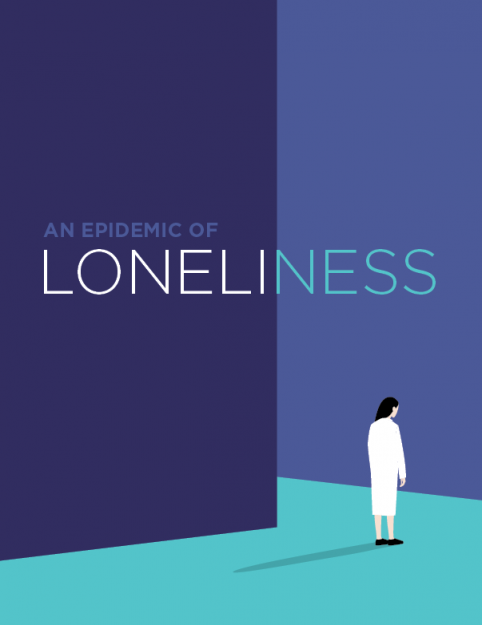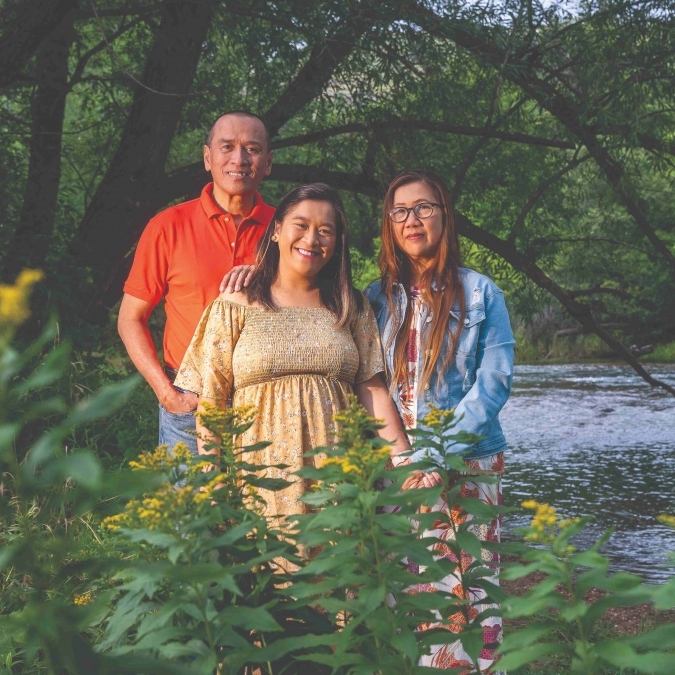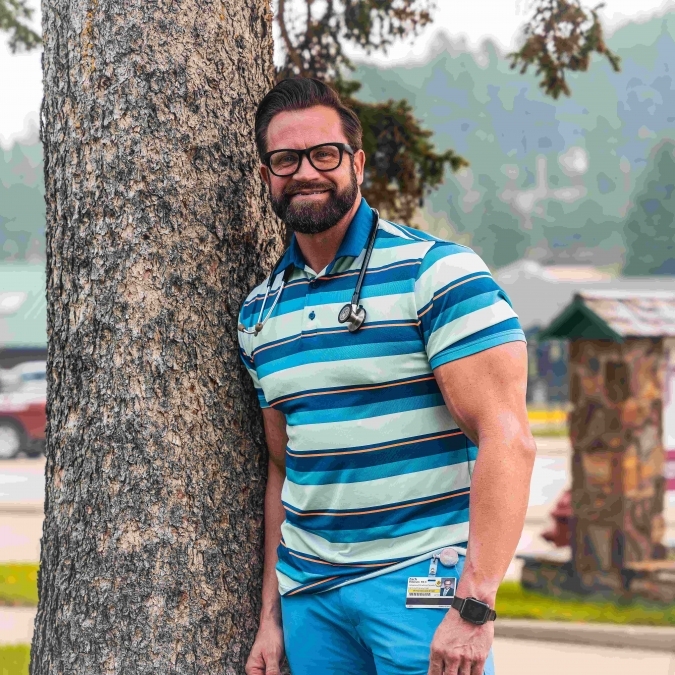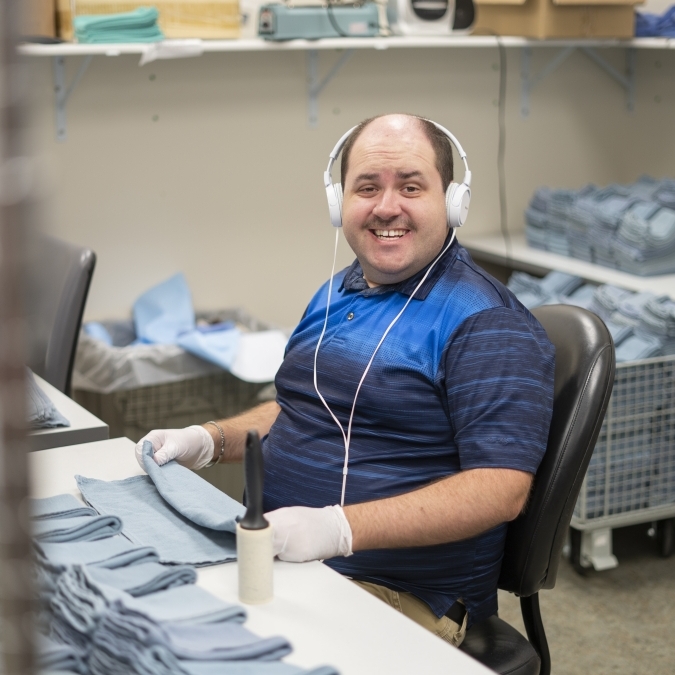In 1999, Britney Spears sang the words, “My loneliness is killing me…” Those lyrics weren’t meant to be taken literally, but Britney was ahead of her time — new evidence indicates that loneliness has an incredibly detrimental effect on our health.
But you don’t have to just take Britney’s word for it. Last spring, the Surgeon General of the United States, Vivek Hallegere Murthy, released a bold statement: loneliness is a public health epidemic. In the 85-page document that accompanied this declaration, the surgeon general and his team cited research that made the eye-catching claim that chronic loneliness has the equivalent outcome on an individual's mortality as smoking 15 cigarettes a day.
It’s easy to understand how factors like obesity, smoking and contagious diseases are connected to matters of public health — their impacts are observable. Mental health ailments, on the other hand, tend to work less visibly and in more incremental ways. Smoking clearly causes emphysema, but can moods, feelings — whatever you’d like to label them — like loneliness really take years off our lives?
Strong enough to ask for help
Joy Mueller, M.D., is a Family Medicine Physician at Monument Health Sturgis Clinic. For the last five years, she’s helped the people of Sturgis and other Northern Hills communities live healthier lives. Dr. Mueller has a deep understanding of how mental health can’t be ignored if individuals want to get the most out of their health. So, when she read that the surgeon general compared loneliness to smoking, she wasn’t surprised.
“What the surgeon general said is really important because he called out that our health is more than just our labs and our vitals,” Dr. Mueller said. “He really brought attention to the idea that there's so much more to ourselves — that the support and the people around us and how we choose to interact or not to interact with people around us is an important part of our health.”
Dr. Mueller said that she encourages her patients to not neglect their mental well-being, and that receiving support isn’t a luxury; it’s a critical component of their overall health. But, she said that this view of mental health as a necessity often clashes with some of her patients’ lifestyles. “In South Dakota most of my patients are self-reliant, hard-working, strong people. So asking for help or support can be challenging.”
Dr. Mueller pointed to her aging patients or patients who receive serious diagnoses like cancer as prime examples of individuals who have a strong potential to isolate because they don’t want to burden their loved ones. “We have a lot of conversations like this: ‘Your son, or your daughter or that nice lady who brought you last time seemed to really enjoy being here with you. Why don't we give her a call?’”
These sorts of conversations play a serious role in the overall health of a person — if someone is missing doctor’s appointments or can’t make it to the pharmacy or grocery store, their overall well-being is going to take a hit. And research has shown that isolation, as the surgeon general pointed out, can cause the systems of the body to deteriorate in measurable ways. That’s why Monument Health has invested in the mental health needs of their patients with the presence of caregivers like McKenzie Grim.
A non-negotiable
McKenzie Grim, CSW-PIP, is a Licensed Clinical Social Worker who practices alongside Dr. Mueller at the Sturgis Clinic. “People will often hear the term social work and assume case management or social services, but once you reach the master’s level, the focus is mostly psychotherapy, and that’s primarily my job description at the clinic,” she said.
McKenzie helps patients see a complete picture of wellness — that regular social interaction isn’t a nicety; it’s as important to our health as eating healthy or exercising. “Your physical and mental well-being is the core of your everyday life,” she said. “It is non-negotiable. Are you surviving, or are you living?”
McKenzie has said that loneliness doesn’t discriminate, and that anyone has the potential to suffer from isolation — including families. “Family time is so important, but being in a dual income household is more common than not,” McKenzie explained. “Daily schedules really help a family maintain continuity for everyone. Twenty minutes a day of quality time with your family has the potential to increase your overall well-being.”
Like Dr. Mueller, McKenzie wasn’t surprised when the surgeon general sounded the alarm about loneliness in the U.S. “I don't think the topic of loneliness is new, but COVID-19 ripped off the Band-Aid,” she said. “The surgeon general’s office has categorized it as an epidemic, but it has been around for at least the last five years. It can cause issues with blood pressure and BMI, as well as your mental health. However, all of these things are manageable.”
Major diagnoses like cancer usually receive an automatic referral to mental health professionals like McKenzie. “Usually the first time I meet with someone, I just let them know that I’m here for them; that I’m not going to force myself on them or judge them — that I’m just a part of their toolkit.” A complete picture of wellness must include an honest look at mental health. As McKenzie pointed out, it’s non-negotiable.
Sometimes, finding opportunities to socialize can be difficult, especially in a rural setting. McKenzie has a tip on building self-confidence and combating loneliness in rural South Dakota: “Small towns are really trying to encourage more community gatherings. Throughout the Black Hills we see opportunities to socialize are out there; I encourage everyone to search them out.”
Dr. Mueller said of McKenzie, “She’s wonderful at her job, and we are so fortunate to have her in our community. I really think that’s one of the things that the surgeon general is getting at. How can we provide more mental health support for people?” Both McKenzie and Dr. Mueller appreciate that Monument Health has invested in treating both the physical and mental health of patients by having social workers, counselors and other mental health professionals readily available to patients.
Written by Stephen Simpson



